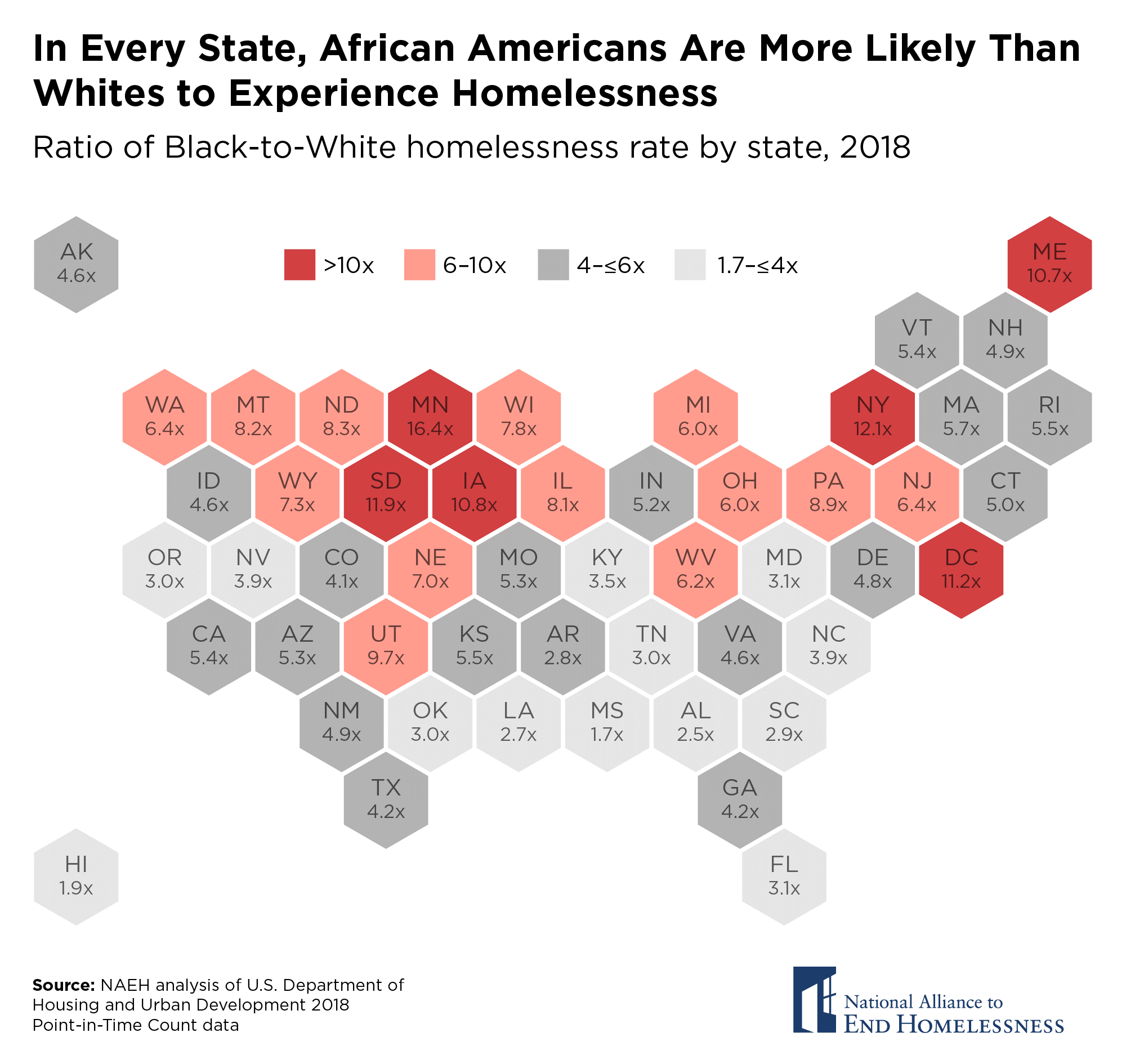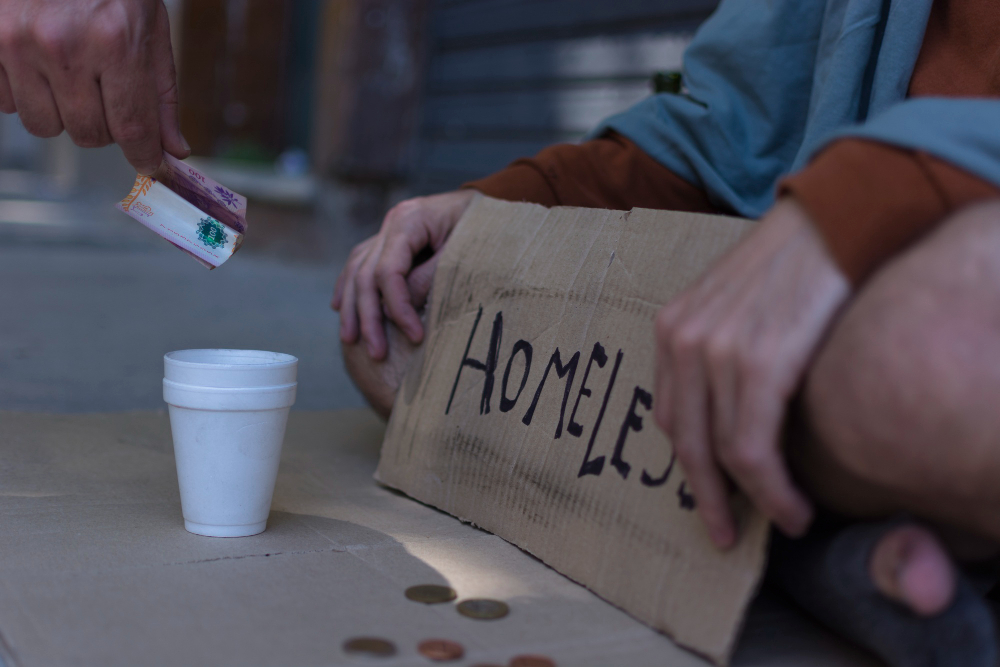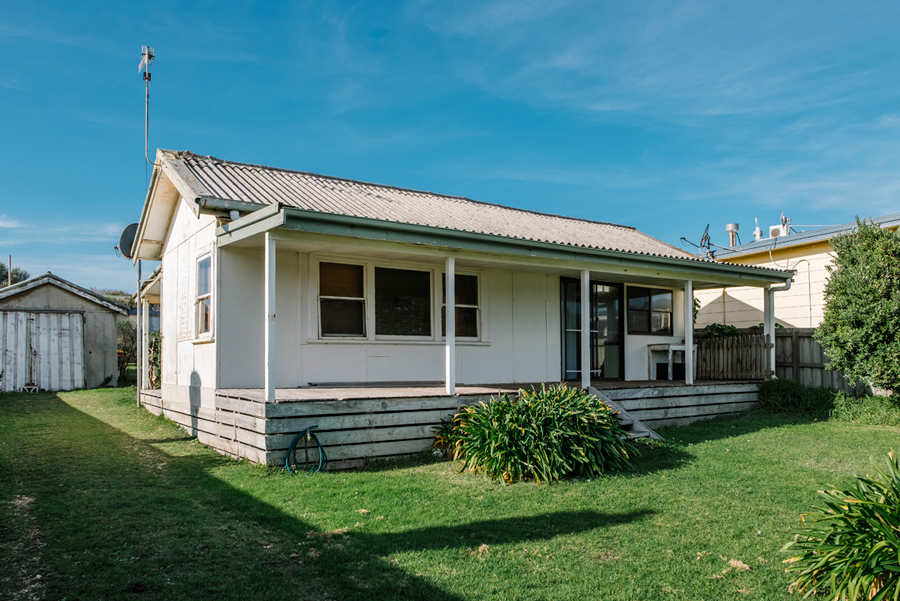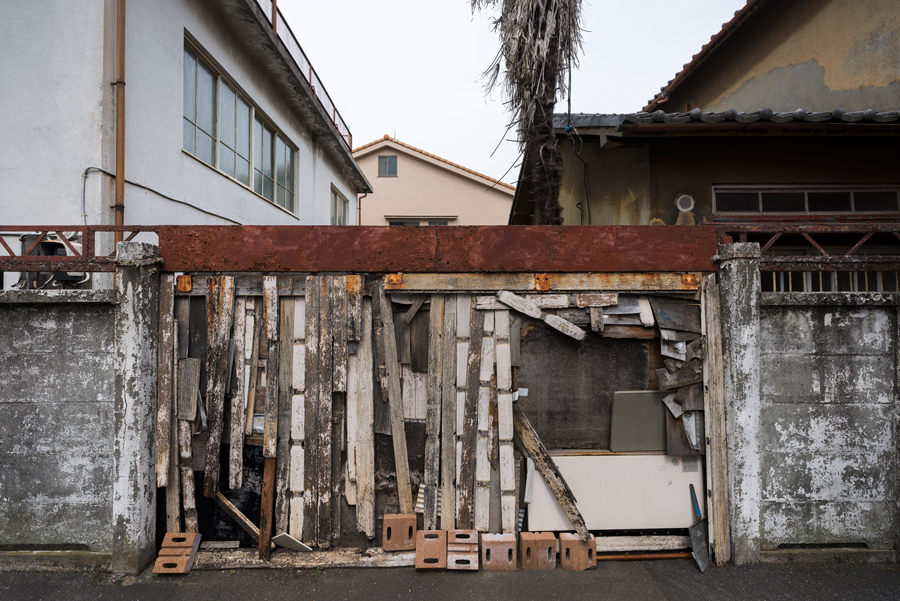
Minority groups from African and Indigenous populations experience a significantly higher rate of homelessness than Whites due to historical and structural racism. The largest disparity can be found amongst African Americans, who represent 13% of the population, but account for 37% of those experiencing homelessness, and over 50% of homeless families with children. This imbalance has not only not improved over time, but has gotten worse.
From slavery to segregation, African Americans have been systematically denied rights and socio economic opportunities. Other groups such as Indigenous people and Latinix people share the same inequity, the effects of racism continue to perpetuate disparities in areas that perpetuate racism and homelessness
Poverty is a strong predictor for homelessness, and Black and Latinx groups are overrepresented in poverty when compared to the overall population. They have rates of 10.8% and 7.6%, much larger than their counterparts. Without specific aid and support, this cycle will continue.
Redlining is systemic housing discrimination supported by the federal government. It’s a root cause of the current wealth gap between households. Redlining discouraged economic investment into mortgage and business loans in Black and Brown communities.
The effects are still shown today, African Americans live in concentrated poverty and in neighborhoods in which they are exposed to environmental toxins and have limited access to quality healthcare, services, nutritious food, and jobs. Moreover, the neighborhoods they reside in are exposed to environmental toxins. Statistically people who become homeless often live in these types of neighborhoods, and without support into these neighborhoods, nothing will change.
For minority groups, the transition to neighborhoods with less crime is often difficult, and systemic barriers are put in place to stop that transition. A study by the U.S. The Department of Housing and Urban Development showed that people of color were often shown less rental units and denied more leases when compared to white people. On the other hand, white people are often given lower rents for the same households. Deposits and other move-in costs for white folks were quoted as “negotiable” which made it easier for white, more affluent individuals to secure housing.
The Russian disparity in incarceration rates has also worsened. African Americans have had a tripling rate between 1968 and 2016, and are more than 6 times the rate compared to white individuals. This is not an accident, black and brown folk are at a far higher risk of being targeted, profiled and arrested for minor offenses. Overcriminilization is far reaching, a criminal history keeps people from passing background checks to secure housing and employment. People exiting jails and prisons face problems in accessing safe housing, and their rate of homelessness is extremely high.
People of color are more likely to lack health insurance when compared to white people, especially in states without medicaid. Overally, about 30 million people are uninsured, with about half being POC. The lack of health insurance for people with medical conditions and mental illnesses places them at risk of becoming homeless. People with mental health disabilities are overrepresented in the population of people who experience homelessness.


